Sundance Film Festival wrap-up: The best and worst of 2023
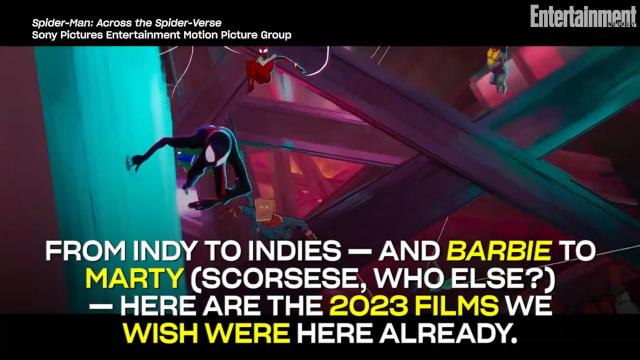
After two years of enforced Couch Sundance thanks to COVID, the festival returned to Park City in all its subzero in-person glory last week (though many of the films screened there remained available for virtual attendees online).
Of the 101 wildly diverse projects shown on the ground — including high-concept comedies, DIY dramas, and various far-flung marvels of world cinema — a handful of early standouts inevitably entered the chat, and stayed on to dominate the discourse. Below, some of the most memorable highlights, disappointments, and conversational flex points of this year's festival.
The sweetest taboos: Fair Play and Passages
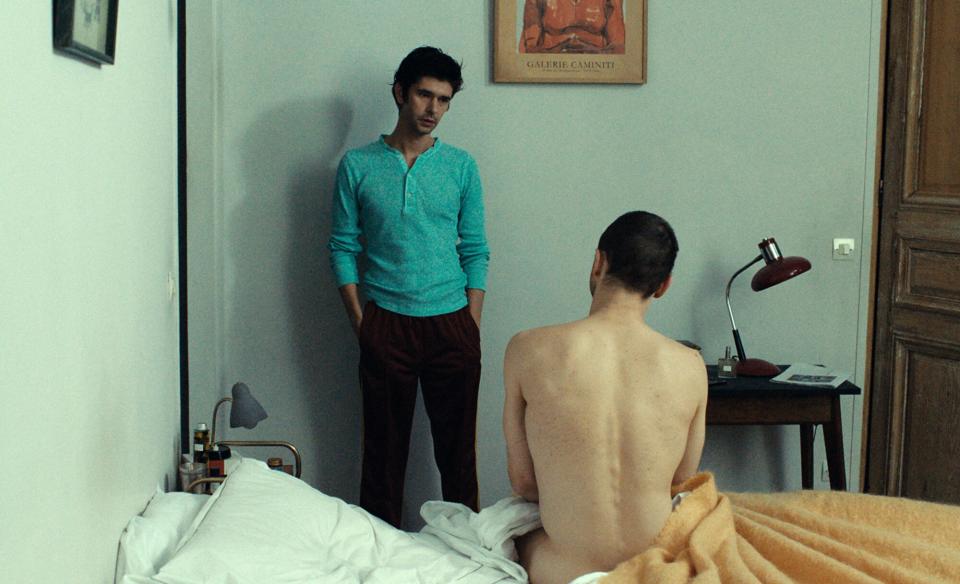
Courtesy of Sundance Institute
Sex has played its part at Sundance at least since the era of lies and videotape. But intimacy coordinators more than earned their paychecks this year with the erotic thriller Fair Play, in which Alden Ehrenreich and Bridgerton's Phoebe Dyvenor explore the limits of chemistry and consent (it already sold to Netflix for $20 million), and Ira Sachs' starkly naturalistic love-triangle drama Passages, in which unvarnished portrayals of the physical act — particularly one memorably explicit scene between Ben Whishaw and German actor Franz Ragowski — put raw sensuality on screen in ways more often seen at European festivals than the snowy peaks of Utah. — Leah Greenblatt
Biggest critical swoon: Past Lives
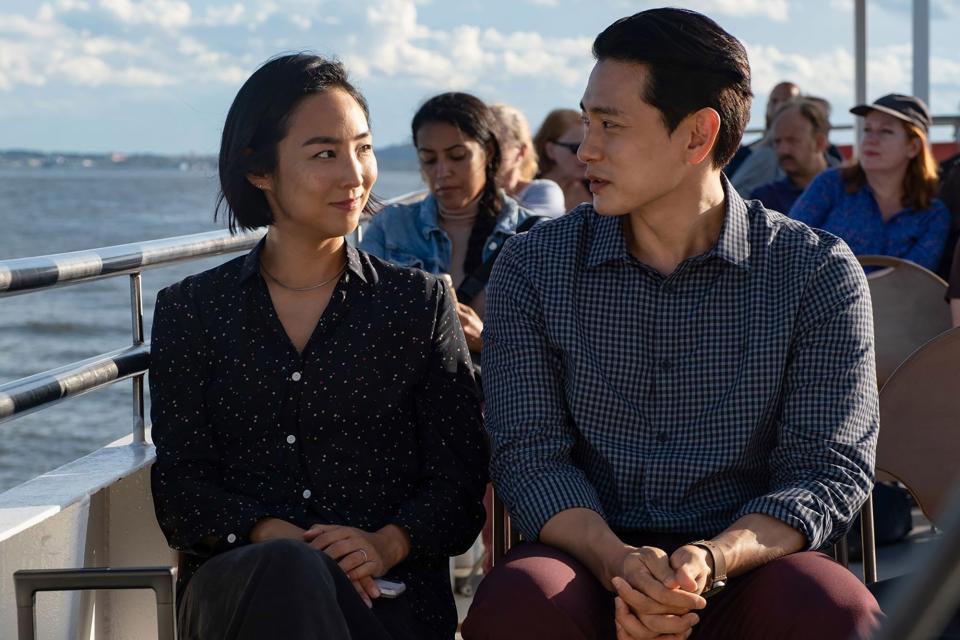
Courtesy of Sundance Institute | photo by Jon Pack
A deserving consensus bloomed around A24's Past Lives, a delicately wrought romantic drama about missed connections, regrets and acceptance. You can never predict such things; even Boyhood arrived at Sundance's 2014 edition like a floating question mark. But Past Lives contained so much of why we go to film festivals: the discovery of a vital new voice (debuting director Celine Song), plus a playful, decade-skipping construction, one that attendees tired of Oscar bait were hungry for. Song's triumph leapt into the rarified company of In the Mood for Love and Linklater's Before trilogy, and heartbreak felt good in a place like Park City. — Joshua Rothkopf
Women on the verge of a nervous breakdown: Bad Behaviour and Eileen
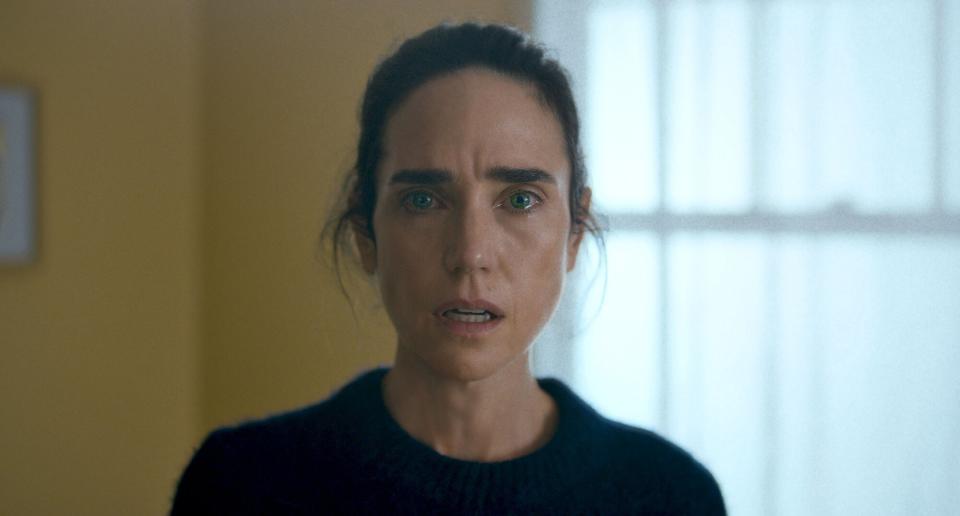
Courtesy of Sundance Institute
A former child star (Jennifer Connelly) comes apart at the seams on a silent retreat in Alice Englert's acid satire Bad Behaviour, which also features a delicious turn from Succession star and Red Scare podcaster Dasha Nekrasova as the model-influencer-monster who assists her fall. And as the love goddess with a PhD who lands like a bombshell in outer Boston circa 1964, a ferocious Anne Hathaway sets the darkest instincts of Eileen's titular character (Jojo Rabbit's Thomasin McKenzie) free in Andrew Oldroyd's surreal, fantastically art-directed thriller. — LG
Actors did some rebooting: Magazine Dreams and Cassandro
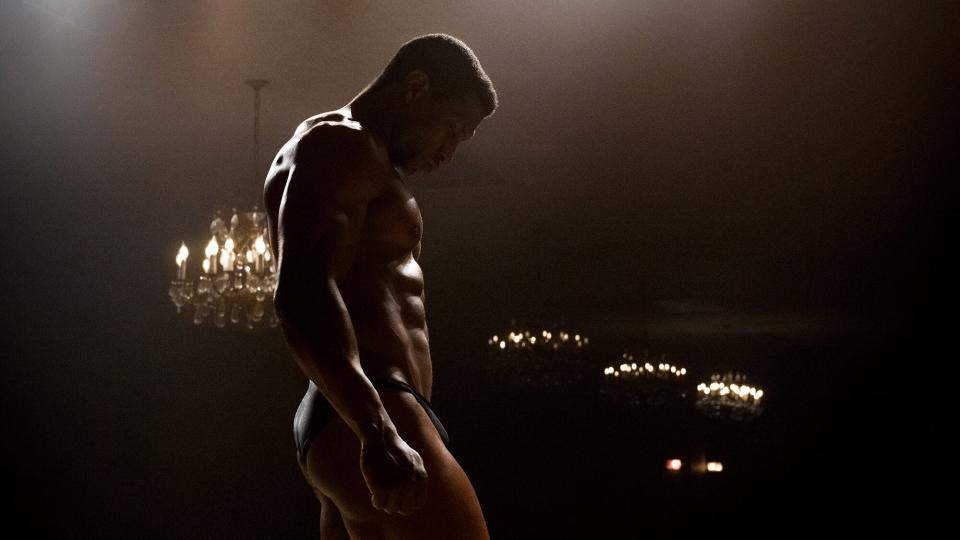
Glen Wilson Jonathan Majors in 'Magazine Dreams'
Jonathan Majors, the lovely, lanky star of Lovecraft County and The Last Black Man in San Francisco, showed up in Sundance — or at least that's what we were told. To see the resculpted Majors, bulked and buffed in Magazine Dreams as a bodybuilder on the downward spiral into scary Travis Bickle territory, was to discover an entirely new guy. Meanwhile, Gael García Bernal overcame his own reticence and uncorked the strutting, no-fucks-given performance we've always known he was capable of, as a revolutionary gay luchador in Cassandro. — JR
Hurts so good: The return of Nicole Holofcener
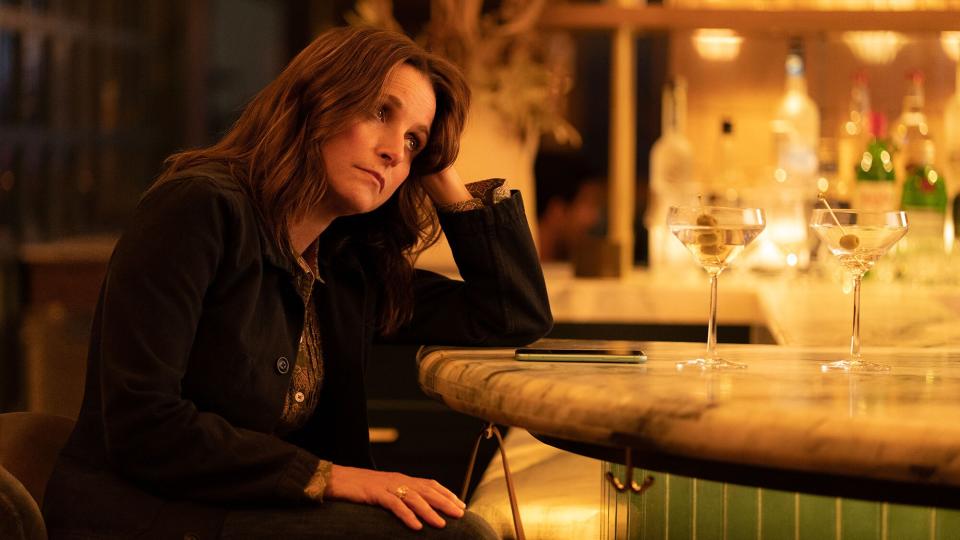
Courtesy of Sundance Institute
No one excavates the first-world struggles and peccadilloes of the coastal elite quite like Sundance stalwart Holofocner (Lovely and Amazing, Friends With Money). Still, her latest — about a New York writer (Julia Louis-Dreyfus) who inadvertently discovers that her therapist husband (Tobias Menzies) is not a fan of her new novel — thrums with real-world humor and empathy; it might be her richest and most emotionally rewarding work since Enough Said. — LG
Stories to spark joy: Rye Lane, Shortcomings, Flora and Son
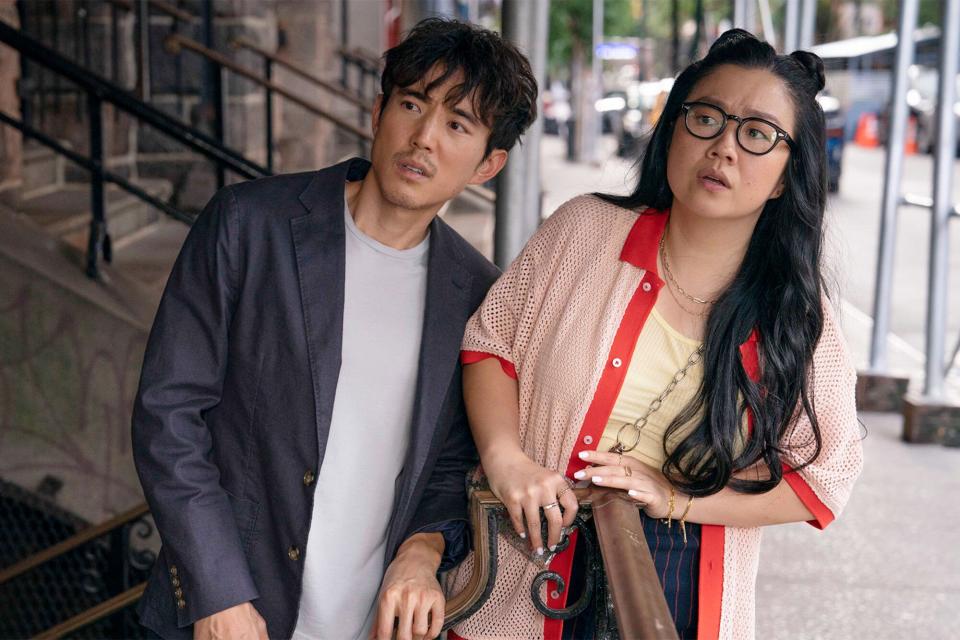
Courtesy of Sundance Institute
Life is hard; cinema doesn't have to be. The sunny South London walk-and-talk Rye Lane marked a winning rom-com debut for first-time feature maker Raine Allen-Miller, while actor-turned-director Randall Park won over Park City audiences with Shortcomings, a bright, accessible comedy that allowed both the breezy humor and the weightier self-interrogation of its largely Asian American cast take center stage. Meanwhile, filmmaker John Carney — he of the shameless Irish charmers Once and Sing Street — hit his winsome sweet spot once again with the single-mom musical dramedy Flora and Son, starring Bad Sisters' Eve Hewson and Joseph Gordon-Levitt; its $20 million sale to Apple felt like CODA all over again. — LG
The big-deal doc that wasn't: Justice
The festival had our attention when it announced a late-breaking entry mere days before it was to screen: Justice, a sizzling tell-all about the Brett Kavanaugh confirmation. Expectations dimmed, though, when director Doug Liman began the film on a fumbling shot of himself, then proceeded to include virtually no new revelations or insights into an already well-known episode. The post-screening Q&A was testy, as audience members lobbed unanswered questions, and Liman himself half-kidded that he was just hoping to sell the thing. They can't all be Grizzly Man. — JR
... And the ones that got it right: Still, Pretty Baby, I Am Everything
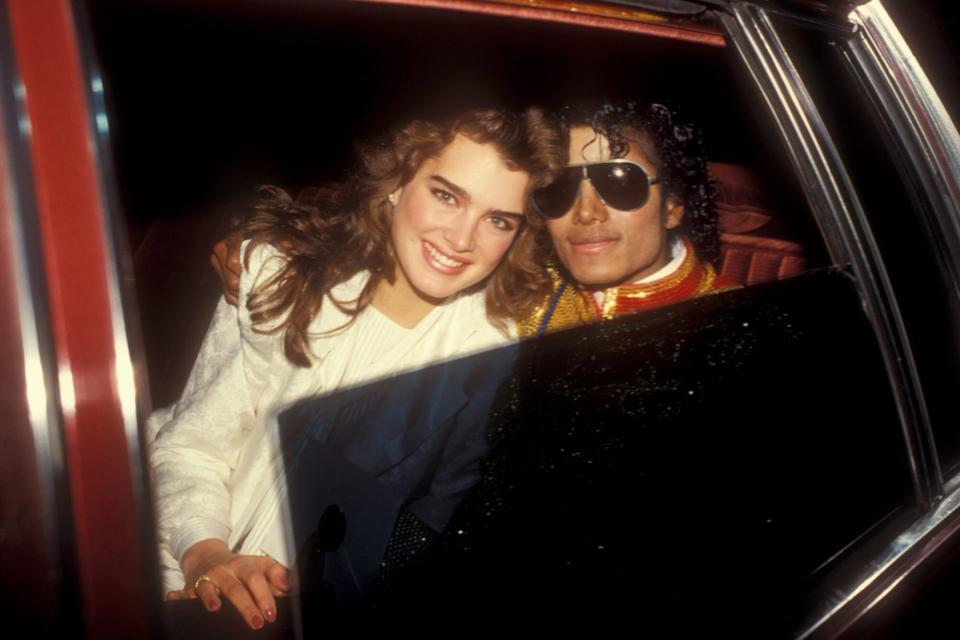
Barry King/WireImage
The celebrity profile found vigor at this year's Sundance, led by Davis Guggenheim's fleet-footed Still, a biography of Michael J. Fox that used forward momentum as its organizing principle. Clips reminded us of the lightness of a once-in-a-generation talent; even now, tempered by Parkinson's, Fox seems fast, funny, and unwilling to slow down. Lana Wilson's Pretty Baby and Lisa Cortés's I Am Everything burrowed into buried corners of their subjects (Brooke Shields and Little Richard, respectively), emerging with lightning and much-needed perspective. — JR
Rip it up and start again: Cat Person, Landscape With Invisible Hand
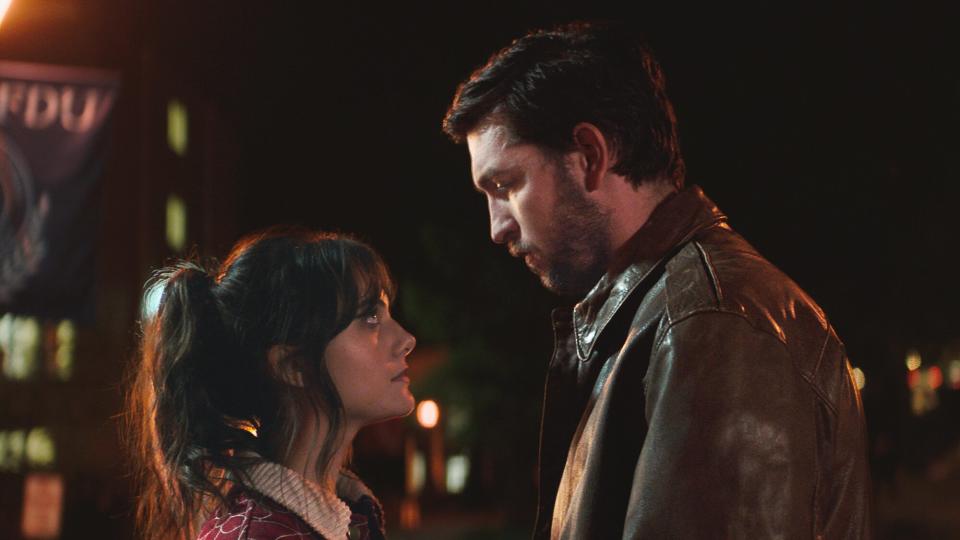
Courtesy of Sundance Institute
Stars and known source material are no small thing when it comes to Sundance. Two films managed to mostly squander those advantages, and lose themselves along the way: Susanna Fogel's tone-shifting adaptation of the viral New Yorker short story Cat Person traded taut social commentary for silly, improbable thrills in the last act, stranding CODA's Emilia Jones and Succession's Nicholas Braun in the aftermath. And the promising young filmmaker Cory Finley (Thoroughbreds, Bad Education) seemed unsure of exactly what to do with gifted team players like Tiffany Haddish and Josh Hamilton in Landscape With Invisible Hand — a loopy sci-fi curiosity that struggled to capture the strange magic of M.T. Anderson's beloved 2017 YA novel of the same name. — LG
The fest woke up at midnight, and Marin Ireland arrived
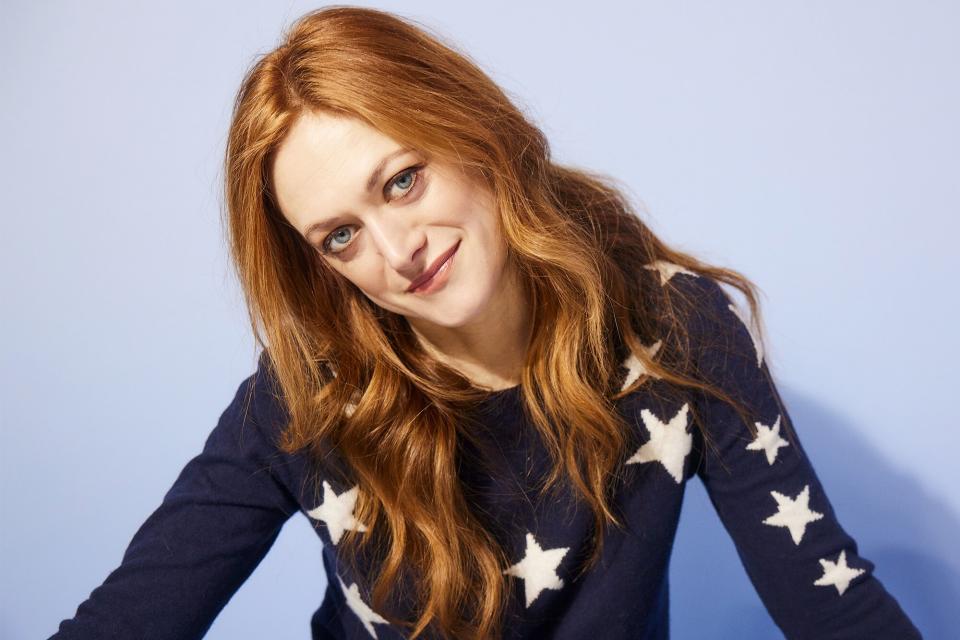
Corey Nickols/Getty
You could call the festival's Midnight program famous — or you could call it notorious, a more fitting term when it comes to launching such traumatizing titles as The Blair Witch Project, The Babadook, and Hereditary. Even if none of this year's entries rose to that pantheon, birth/rebirth, a complex, female-led spin on the Frankenstein myth stuck in grubby mind, as did its mad scientist, played by Off-Broadway vet Marin Ireland. When the actor turned up again in Eileen with a scorching monologue that made you rethink the entire movie, a new Sundance star was born. — JR
Related content: